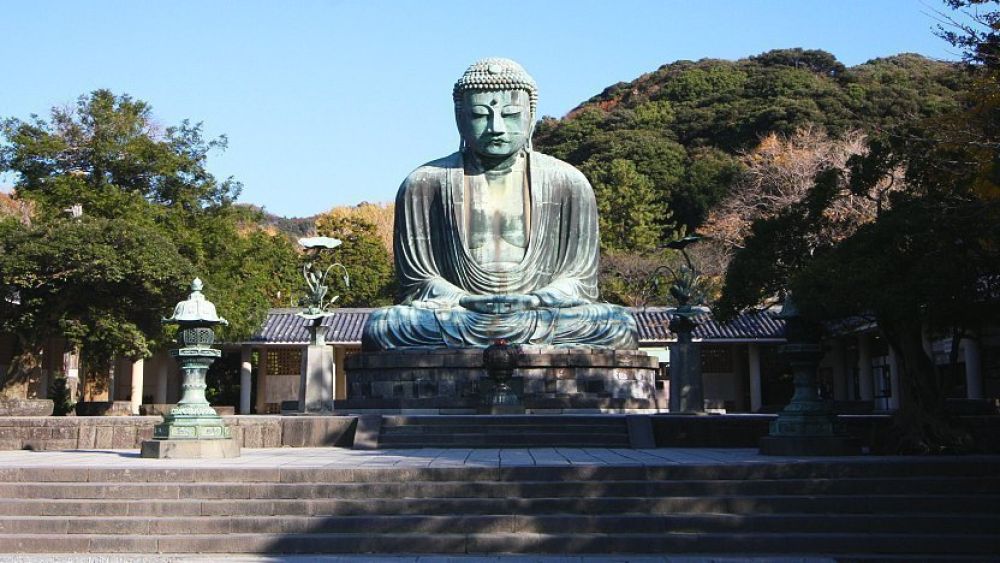

The Great Buddha of Kamakura, also known as Daibutsu, is a monumental outdoor bronze statue of Amitabha Buddha at the Kotoku-in Temple in Kamakura, Japan. While the statue itself does not have a direct connection to food history, the city of Kamakura has a rich culinary tradition that dates back to the Kamakura period (1185-1333). During this time, the city was the political center of Japan, and many unique Japanese dishes and food practices were developed or refined. Zen Buddhism also played a pivotal role in shaping the Japanese tea ceremony, vegetarian cuisine, and the emphasis on local and seasonal ingredients that are still appreciated in Kamakura's food culture today.